Home >Java >javaTutorial >Analysis of spring-cloud-ribbon principle: several core classes of ribbon
Analysis of spring-cloud-ribbon principle: several core classes of ribbon
- php是最好的语言Original
- 2018-08-02 14:35:252364browse
Ribbon is a client load balancer that provides great control over the behavior of HTTP and TCP clients. Feign has used Ribbon by default (reference article)
1. Let’s take a look at several core classes of ribbon
1, IClientConfig Default implementation classDefaultClientConfigImpl , mainly used to configure the relevant attribute configuration of the ribbon client
2, ServerListUpdaterDefault implementation class PollingServerListUpdater, mainly responsible for dynamically updating the server list
After the start method is called, a scheduled task will be started, with a delay of 1s to start execution, and it will be executed periodically every 30s time interval
-
Periodic time interval You can set the
start method by ribbon.ServerListRefreshInterval=1000 - ribbonClientName.ribbon.ServerListRefreshInterval=1000
. ##DynamicServerListLoadBalancer
Execute the call during initialization
ServerListGet the server list
- Default implementation class
ConfigurationBasedServerList
, the default is to get the server list from the configuration file, configure it like this[ribbonClinetName].ribbon.listOfServers=xxx,xxx -
ConsulServerList
Introduces the implementation class of consul for service discovery, which is mainly responsible for obtaining the server list of the registration center
Remarks: You can extend your own# through configuration ##ServerList
Implementation, like this:
##4、[ribbonClient].ribbon.NIWSServerListClassName=Class nameServerListFilter
- ZonePreferenceServerListFilter
- Mainly filters the server list based on partitions
- Introduce the implementation class of consul service discovery, which is mainly responsible for filtering the list of servers that pass the consul health check (all server lists will be obtained in ConsulServerList, including servers that fail the health check)
implementation through configuration, like this Note: You can extend your own
Note: You can extend your own
ServerList[ribbonClient].ribbon.NIWSServerListFilterClassName=Class name
5, IPing
- DummyPing
- , this is a false detection, always returns true
- , introduces the implementation class of consul service discovery, mainly based on the checks parameter returned by consul to determine whether the server is alive, and
HealthServiceServerListFilter
The filtering judgment is the same
implementation through configuration, like this: Note: You can extend your own
Note: You can extend your own
ServerList[ribbonClient].ribbon .NFLoadBalancerPingClassName=Class name
6、 IRule
- ZoneAvoidanceRule
- , which combines the performance of the zone where the server is located and the availability of the server to select server
- : randomly select a server
- : RoundRobin mode polls the selected server
- : On-machine retry mechanism for the selected load balancing policy.
- : Assign a weight based on the response time. The longer the response time, the smaller the weight, and the lower the possibility of being selected.
- : Filter out those back-end servers that are marked as circuit tripped because of persistent connection failures, and filter out those back-end servers with high concurrency ( active connections exceeds the configured threshold)
- : Select a server with the smallest concurrent requests
7, 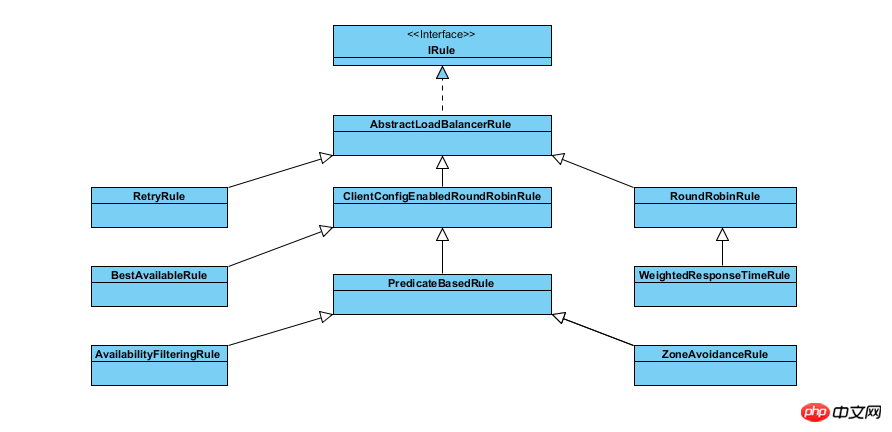 ILoadBalancer
ILoadBalancer
ZoneAwareLoadBalancer, which starts the entire load balancing client
- ServerList
- implementation through configuration, like this:
[ribbonClient].ribbon.NFLoadBalancerClassName=Class name
 Load balancer startup sequence diagram:
Load balancer startup sequence diagram:
During initialization, a scheduled task will be initialized first, which will be executed every 30 seconds. The cache will store all the instance lists allServerList obtained from the registration center and the instance list upServerList that have been successfully pinged. However, during load balancing The list I got is allServerList instead of upServerList. I don’t understand the meaning of this ping
Start a scheduled task to pull the service list from the registration center regularly and execute it every 30 seconds
Initialize to obtain the service list. The pulled service list is filtered by ServiceFilter and stored in the cache.
When the client initiates a call, it will Call the chooseServer method of ILoadBalancer to select an instance and return it to the caller according to the load balancing algorithm of IRule.
Related articles:
WPF 4 Ribbon Development Quick Access Toolbar )
SharePoint 2013 Hide the page’s Ribbon, menu and other non-content elements
The above is the detailed content of Analysis of spring-cloud-ribbon principle: several core classes of ribbon. For more information, please follow other related articles on the PHP Chinese website!


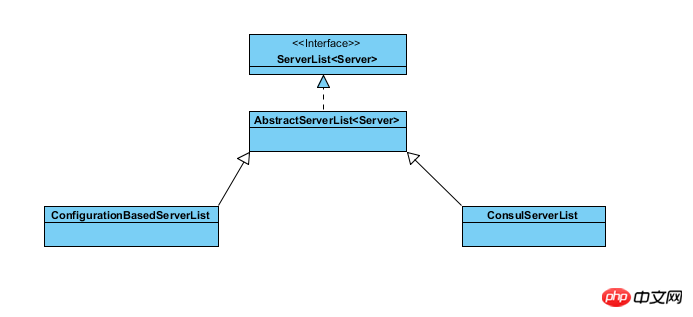
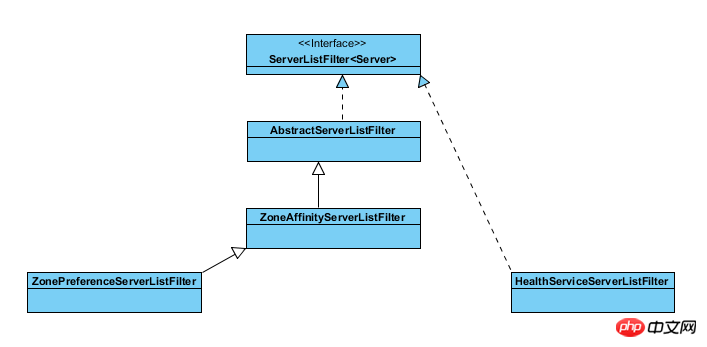 Note: You can extend your own
Note: You can extend your own 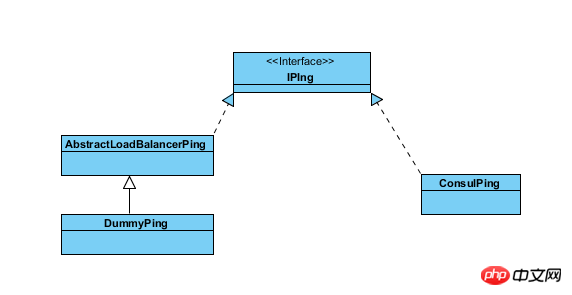 Note: You can extend your own
Note: You can extend your own 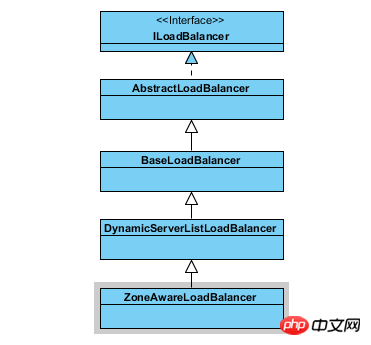 Load balancer startup sequence diagram:
Load balancer startup sequence diagram: